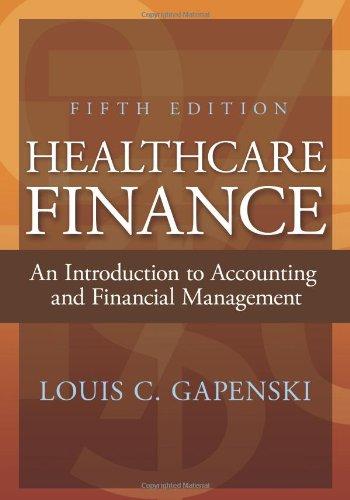Question
PLEASE ANSWER QUESTIONS A-E USING EXCEL FORMULAS. PLEASE SHOW ALL WORK. I CAN'T UNDERSTAND IF YOU DON'T SHOW ALL WORK. THANK YOU VERY MUCH. Eco
PLEASE ANSWER QUESTIONS A-E USING EXCEL FORMULAS. PLEASE SHOW ALL WORK. I CAN'T UNDERSTAND IF YOU DON'T SHOW ALL WORK. THANK YOU VERY MUCH.
Eco Plastics Company: The target capital structure for ECO is given by the weights in the following table:
| Source of Capital | Weight |
| Long-term debt | 30 % |
| Preferred stock | 20 |
| Common stock equity | 50 |
| Total | 100 % |
At the present time, Eco can raise debt by selling 20 year bonds with a $1,000 par value and a 10.5% annual coupon interest rate. Eco's corporate tax rate is 21%, and its bonds generally require an average discount of $45 per bond and flotation costs of $32 per bond when being sold. Eco's outstanding preferred stock pays a 9% dividend and has a $95-per-share par value. The cost of issuing and selling additional preferred stock is expected to be $7 per share. Because ECO is a young firm that requires lots of cash to grow it does not currently pay a dividend to common stockholders. To track the cost of common stock the CFO uses the capital asset price model (CAPM). The CFO and the firm's investment advisors believe that the appropriate risk-free rate is 4% and that the market's expected return equals 13%. Using data from 2012 through 2018, Eco's CFO estimates the firm's beta to be 1.3.
Although Eco's current target capital structure includes 20 % preferred stock, the company is considering using debt financing to retire the outstanding preferred stock, thus shifting their target capital structure to 50% long term debt and 50% common stock. If Eco shifts its capital mix from preferred stock to debt, its financial advisors expect its beta to increase to 1.5.
A) Calculate Eco's current after-tax cost of long term debt.
B) Calculate Eco's current cost of preferred stock
C) Calculate Eco's current cost of common stock
D) Calculate Eco's current weighted average cost capital (WACC)
E (1) Assuming that the debt financing costs do not change, what effect would a shift to a more highly leveraged capital structure consisting of 50% long term debt, 0% preferred stock, and 50% common stock have on the risk premium for Eco's common stock? What would be Eco's new cost of common equity?
(2) What would be Eco's new weighted average cost of capital?
(3) Which capital structure-the original one or this one-seems better? Why?
Step by Step Solution
There are 3 Steps involved in it
Step: 1

Get Instant Access to Expert-Tailored Solutions
See step-by-step solutions with expert insights and AI powered tools for academic success
Step: 2

Step: 3

Ace Your Homework with AI
Get the answers you need in no time with our AI-driven, step-by-step assistance
Get Started


